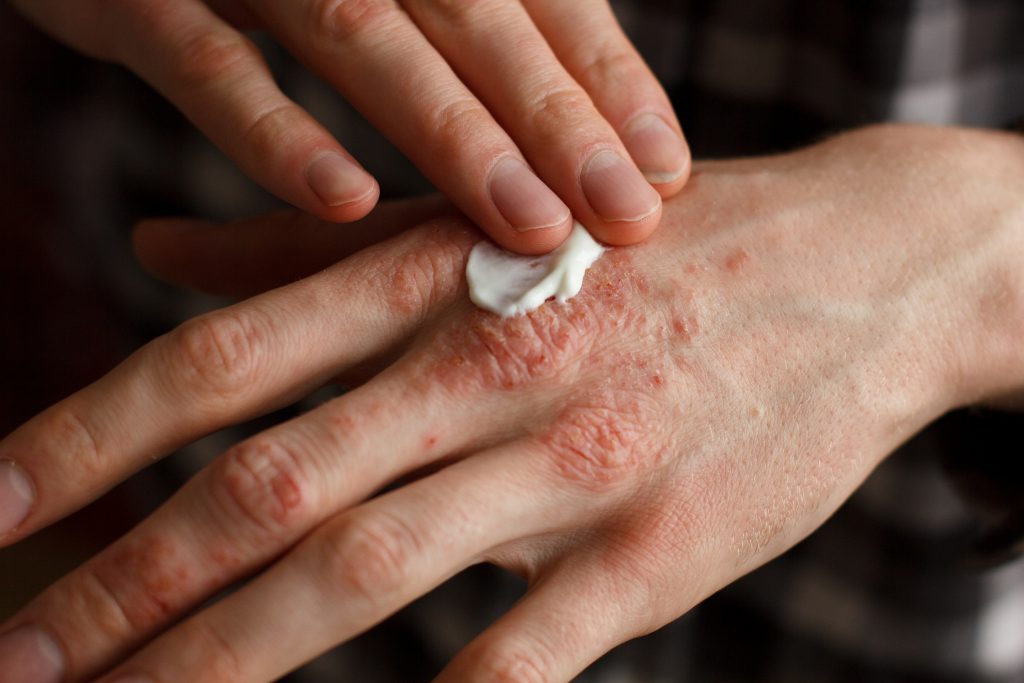
Eczema and psoriasis are chronic skin conditions that can cause discomfort and affect the quality of life for those who suffer from them. While they have different underlying causes and symptoms, both conditions share similarities in terms of treatment approaches. This blog aims to explore the best medications and treatments currently available for eczema and psoriasis, providing insights into their effectiveness, usage, and considerations for managing these skin conditions. Betnovate C Cream and Betnovate Gm Cream is an applied cream used to treat skin conditions such as dermatitis, psoriasis, eczema, and allergic contact dermatitis.
Understanding Eczema (Atopic Dermatitis):
Eczema, also known as atopic dermatitis, is characterized by dry, itchy skin and can vary in severity from mild to severe. It often develops in childhood and may persist into adulthood. Common symptoms include redness, inflammation, and skin thickening due to scratching. The exact cause of eczema is not fully understood but involves a combination of genetic, immune system, and environmental factors.
Understanding Psoriasis:
Psoriasis is an autoimmune condition that causes rapid skin cell turnover, leading to the accumulation of thick, scaly patches on the skin’s surface. These patches, known as plaques, can be red, inflamed, and itchy. Psoriasis can affect any part of the body and may also involve nails and joints. The immune system mistakenly attacks healthy skin cells, triggering the rapid turnover process. Like eczema, psoriasis can vary in severity and may worsen or improve over time.
Common Medications and Treatments:
1. Topical Treatments
-
Corticosteroids: These anti-inflammatory creams or ointments are often used as first-line treatment for both eczema and psoriasis to reduce inflammation and itching. They come in varying strengths depending on the severity of symptoms.
-
Topical Calcineurin Inhibitors (TCIs): Tacrolimus and pimecrolimus are non-steroidal creams that help reduce inflammation and itching in sensitive areas, such as the face and skin folds, for eczema.
-
Topical Retinoids: Derived from vitamin A, these creams help to normalize skin cell production and can be effective for treating psoriasis plaques.
2. Systemic Treatments
-
Oral Corticosteroids: In severe cases of eczema or psoriasis, short courses of oral steroids may be prescribed to quickly reduce inflammation. However, long-term use is avoided due to side effects.
-
Immunosuppressants: Medications like methotrexate, cyclosporine, and azathioprine work by suppressing the immune system to reduce inflammation in moderate to severe cases of psoriasis.
-
Biologic Drugs: These are newer medications designed to target specific parts of the immune system involved in psoriasis. Examples include adalimumab, etanercept, ustekinumab, and secukinumab.
3. Phototherapy (Light Therapy)
-
UVB Phototherapy: Exposure to UVB light can slow down the rapid skin cell turnover in psoriasis plaques and reduce inflammation.
-
PUVA Therapy: Psoralen combined with UVA light therapy is used for more severe cases of psoriasis.
4. Moisturizers and Emollients
- Regular use of moisturizers: Keeping the skin hydrated is crucial for managing both eczema and psoriasis, helping to alleviate dryness and itching.
Considerations for Treatment:
-
Individualized Approach: Treatment plans should be tailored to the individual’s specific condition, severity, and response to previous therapies.
-
Long-term Management: Both eczema and psoriasis are chronic conditions that require ongoing management and maintenance to control symptoms and prevent flare-ups.
-
Side Effects: Many medications used for eczema and psoriasis can have side effects, ranging from mild skin irritation to more serious complications like immune suppression with systemic treatments.
Choosing the Best Medicine:
The choice of medication for eczema or psoriasis depends on several factors:
-
Severity of Symptoms: Mild cases may be managed with topical treatments, while moderate to severe cases may require systemic medications or phototherapy.
-
Patient Preferences: Some individuals may prefer topical treatments for their convenience and minimal systemic side effects, while others may opt for systemic therapies for more comprehensive symptom control.
-
Medical History: Existing medical conditions and medications should be considered to avoid interactions and potential complications.
Conclusion:
Effective management of eczema and psoriasis involves a combination of medications, lifestyle modifications, and regular monitoring by healthcare professionals. While there is no one-size-fits-all approach, advancements in treatment options offer hope for controlling symptoms and improving quality of life for individuals living with these chronic skin conditions. Consulting with a dermatologist or healthcare provider is essential to develop a personalized treatment plan that addresses specific needs and maximizes therapeutic benefits while minimizing potential risks. With proper care and adherence to treatment, many individuals can achieve significant relief and manage their condition effectively over the long term.






